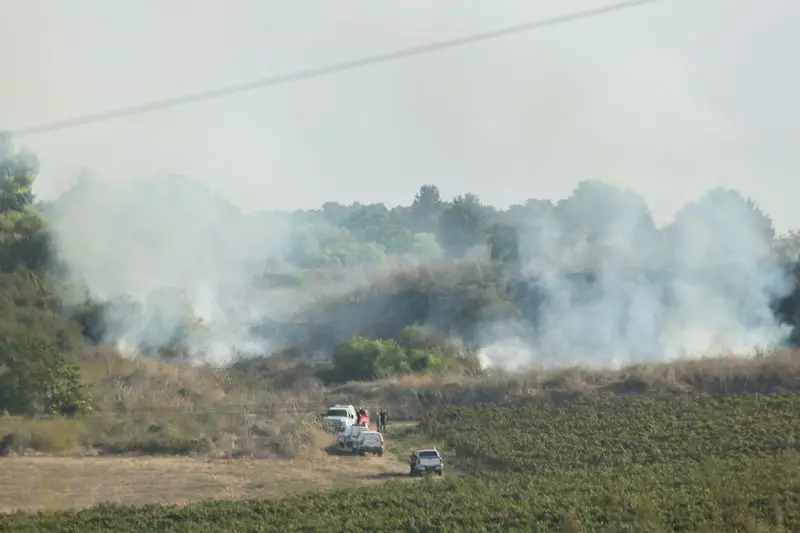The recent missile strike by the Iran-aligned Houthi movement, which successfully crossed into central Israel, marks a significant escalation in the ongoing tensions in the Middle East. This event not only reflects the shifting dynamics of regional conflict but also raises urgent questions about security confrontation and the potential for wider ramifications. The missile, which reportedly traveled over 2,000 kilometers in just 11 and a half minutes, showcases advancements in missile technology and capability that could alter the security landscape for Israel and its allies.
The Importance of Context
In extricating the impact of this unprecedented event, it is vital to consider the geopolitical backdrop. The Houthis, a group primarily based in northern Yemen, have presented themselves as champions of Palestinian solidarity amid heightened conflicts that erupted following Hamas’s October offensive against Israel. Their assertion of solidarity is not merely rhetorical; it denotes a strategic alignment with the broader anti-Israel coalition that persists across the region. Prime Minister Benjamin Netanyahu’s response, which includes a vow to impose a “heavy price” on the Houthis, suggests a retaliatory approach aimed at deterring future incursions while simultaneously reinforcing Israel’s stance against perceived aggression.
Though no injuries were reported during this initial strike, it serves as an unsettling reminder of the fragility of security arrangements in the region. The psychological impact on Israeli citizens cannot be overstated; air raid sirens and a rush to shelter symbolize a return to a reality marked by existential threats. Netanyahu’s comments at a cabinet meeting, subtly inviting the Houthis to reconsider the consequences of their aggression, underscore the seriousness with which Israel contemplates this breach of its airspace. The earlier incident involving a Houthi drone that struck Tel Aviv and resulted in casualties has only heightened the urgency for Israel to formulate a robust counter-strategy.
The Houthi’s military spokesperson Yahya Sarea asserted that the missile strike was a significant achievement, especially considering it was purportedly undetected until impact. This advancement indicates an alarming trend—a potential evolution in both their offensive capabilities and tactical planning. The warning from Sarea regarding additional strikes as the anniversary of the October 7 operation approaches signifies an intention to sustain pressure on Israel, potentially leading to an unprecedented wave of missile attacks that challenge Israel’s defensive systems.
As Israel grapples with these threats, recent events have demonstrated that the traditional barriers of military engagement are eroding. The simultaneous launch of around 40 projectiles from Lebanon signifies a coordinated front, highlighting the interconnectedness of various factions motivated by shared anti-Israel sentiments. The predictable instability generated by these actions enhances the volatility of the region, raising the stakes for Western powers with vested interests in Middle Eastern stability.
Moving forward, the strategic implications of this development cannot be understated. Israel faces the dual challenge of deterrence and proactive engagement. The prospect of addressing threats from non-state actors like the Houthis, alongside established state adversaries, necessitates a recalibrated military strategy that encompasses both air defense enhancements and diplomatic negotiations. Moreover, this event highlights the intricate web of alliances and enmities defining contemporary Middle East geopolitics.
Furthermore, the role of external actors, particularly Iran, in bolstering the capabilities of the Houthis can lead to a larger regional confrontation. The global community, particularly nations invested in fostering stability in the region, must now tread carefully. Aggressive military responses could spiral into broader conflict, while equally, a failure to respond adequately could embolden further aggression among regional actors.
The missile strike by the Houthis into Israeli territory poses both immediate and long-term challenges for security and stability in the region. As this conflict intensifies, it is essential to monitor the evolving military capabilities of non-state actors and the accompanying geopolitical shifts. A nuanced understanding of these emerging threats will be vital for fostering a path toward peace that can withstand the significant forces currently at play in the Middle East. The stakes have never been higher, and the response from all sides may define the future of this turbulent region.

